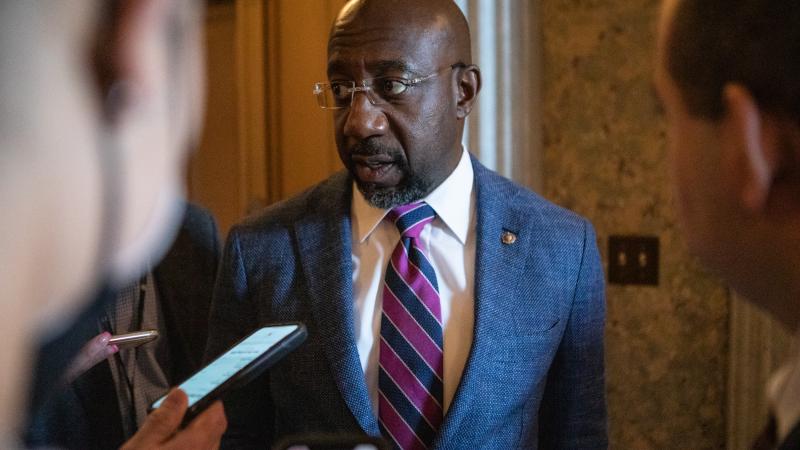Pelosi: $86 billion union pension bailout was 'for the children' and their grandparents
The Speaker said that "the economic security of children is also enhanced by pension security of their grandparents, which is historically secured" by bailout.
House Speaker Nancy Pelosi said on Thursday the $86 billion bailout for failing union-managed pensions in President Biden's $1.9 trillion coronavirus stimulus plan was "for the children."
The American Rescue Plan, the second largest stimulus package in U.S. history, was passed in the Democratic-led House on Wednesday.
"Children are why I went from housewife to House speaker because of the children," Pelosi said during a news conference. "That one in five children in America lives in poverty — as a mother of five, I couldn't abide to that and wanted to make a difference in public policy. One in five goes to sleep hungry at night, hungry at night. And that was even before the coronavirus. And I've always said the three most important issues facing the Congress are our children, our children, our children.
"Their health, their education, the economic security of their families, including the pension security for their grandparents and an environment in which they can thrive safely, world at peace in which they can reach their fulfillment. Well, the first three of those, their health, their education and the economic security of their families was very much affected by the Biden American Rescue Plan. I'm very proud of what it does for children, their health, their education, and the economic security of their families."
On the House floor ahead of the vote on the bill, Pelosi said children would be helped by the taxpayer funding directed toward the struggling union-managed multi-employer pensions.
"Children also benefit from the Earned Income Tax Credit, direct payments and enhanced Unemployment Insurance benefits for their families, and the economic security of children is also enhanced by pension security of their grandparents, which is historically secured in this bill," she said.
"High school students, college students, they talk about the security of their grandparents as important," Pelosi explained, "because to the extent that their parents can focus on them rather than worry about the financial security of their grandparents, it's very important to the family across the board."
Sean Higgins, a research fellow at the Competitive Enterprise Institute, told Just the News that the bailout of these pensions is unprecedented. He said the stimulus bill simply contains money for the failing pensions without strings attached or reform measures.
"There is no precedent for the bailout of multiemployer pensions contained in the COVID relief bill or for private sector pensions generally," Higgins said. "Even the 2008 auto industry bailout required some cutbacks on pensions. Legislative proposals to bail out multi-employer plans were frequently put forward by Democrats over the last decade, but the term 'bailout' itself was politically toxic, so they avoided the term. The bills would characterize the aid as 'loans' and be fuzzy on how the loans would be paid back. Even the COVID relief bill avoids the term. Instead, what it provides is 'special financial assistance' that 'shall not be subject to repayment obligations.'"
The Congressional Budget Office has estimated that the bailout in the stimulus bill would apply to about 186 troubled multi-employer union-managed plans, but the final number could be closer to 336, according to Forbes.
Higgins added that the bailout of underfunded pension promises should not be referred to as "pension reform."
"It should be called a straight up bailout, since there's no real reform in it," he said. "It's literally throwing money at the problem."















